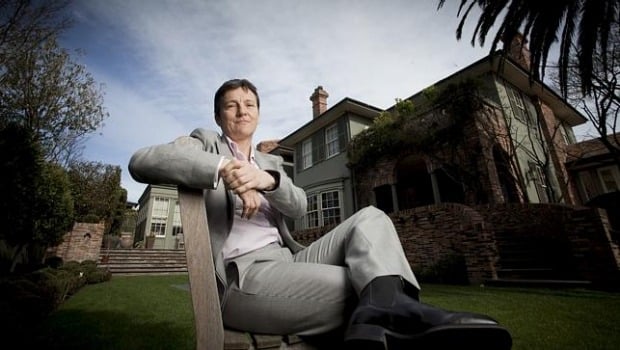As an Auckland schoolgirl, the first high school career advice Skipp Williamson received was that she would be well suited to a life as a builder's labourer. Instead engineering study took her to a PhD at MIT before a switch to an MBA at Oxford led to an accidental stint at McKinsey & Co because it offered a free flight home. That was the launchpad in 1996 for a hands-on brand of corporate consulting under her company's banner, Partners in Performance International (PIP). Williamson has since built a global business servicing blue-chip clients such as BHP Billiton and working on five continents. She spends several days a week flying and managing a virtual workforce of 220 consultants and 50 support staff with no head office. There have been tough moments but she now has her sights set on global domination.
A bunch of us applied to McKinsey because they used to fly you home for your last interview. McKinsey was never really planned, it wasn't intended to go there. I think it's a great organisation to teach you how to analyse. I had five years at McKinsey's and then I left and sort of wandered the world following the work.
It took a long time building the business, not being networked. So I just got a bunch of grey-haired men to sell for me. I found a bunch of very helpful grey-haired men, who went to the right schools, and who thought it was a great lark to get us in.
The very first piece of work that we did was when we knew that this methodology would work. It was UK Paper which belonged to Fletchers. They had bought it at the peak of the cycle and it was losing money hand over fist. We were brought in to do a turn-around and delivered them $100 million in cash in about nine months and took them through to a successful sale in about 15 months. John Hood was head of Fletchers pulp and paper. He was totally gender neutral, just blind as a bat to that. He just called up and said “I think you should do it for us”. I knew him because I had worked over the years for Fletchers, in New Zealand, and being a New Zealander in McKinsey's, I made a point of going and saying hello. That was a big break. It was pay for results. We made a lot of money. It gave us a little bit of a safety net for the long cold hard winter that followed. It was two years until we won the next job. We couldn't get through the door.
I'm not sure it's men versus women. The problem is all the positions of power have historically been male. You want to be careful about that old boys thing. It's not conscious. I don't think people are being discriminatory, I just think it's “here's someone who's introducing me to who I know and trust because we went to school together for 10 years” or whatever it is.
All cultures have their pluses and minuses. In North America, if you say “hey we think we could probably add $100 million to your EBIT on this site; happy to do it on pay for results”, the general manager will just get it and go ”hmmm, downside seems controllable here, let's go”. In Australia, they are concerned that you might make too much money, that you might actually deliver it. I just don't think we are as closely aligned to the shareholder, the shareholder's interests.
I do think there is an interesting thing around mateship and accountability. I think Australians really have a difficulty with holding people to account which is an essential ingredient for performance. That whole concept of mateship, I do wonder if that hasn't confused things in people's minds because you see a lot of discomfort with giving instructions and then closing the loop and holding people to account which we don't see in other cultures. I think that is holding Australia back.
There were certainly points when we were staring at defeat. There was no back-up option. It's quite an important thing: if you're an entrepreneur who has a back-up option, you might not be an entrepreneur.
I swim and I do yoga and spin at the gym pretty religiously. I do it every day. I fly every day pretty much. I don't see the problem. I exercise. You just make time. I don't sleep very much, four to five hours.
Lots of people don't go out on their own because they are worried. People never talk about the giant upsides. Okay, statistics say a lot of them don't succeed but the upsides are huge. If it works, being an entrepreneur is more lucrative. I just think it's fantastic as self-expression.
Story tags and bio Story tags and bio plain free adding 'The' prefix to the AFR
By Mathew Dunckley
The Australian Financial Review
